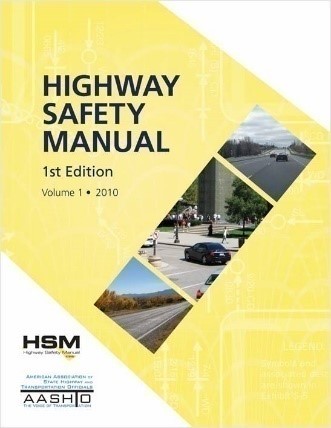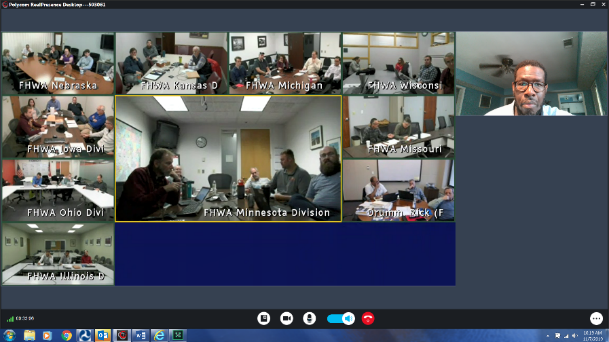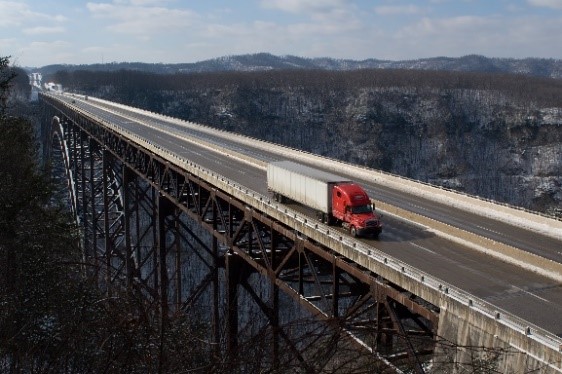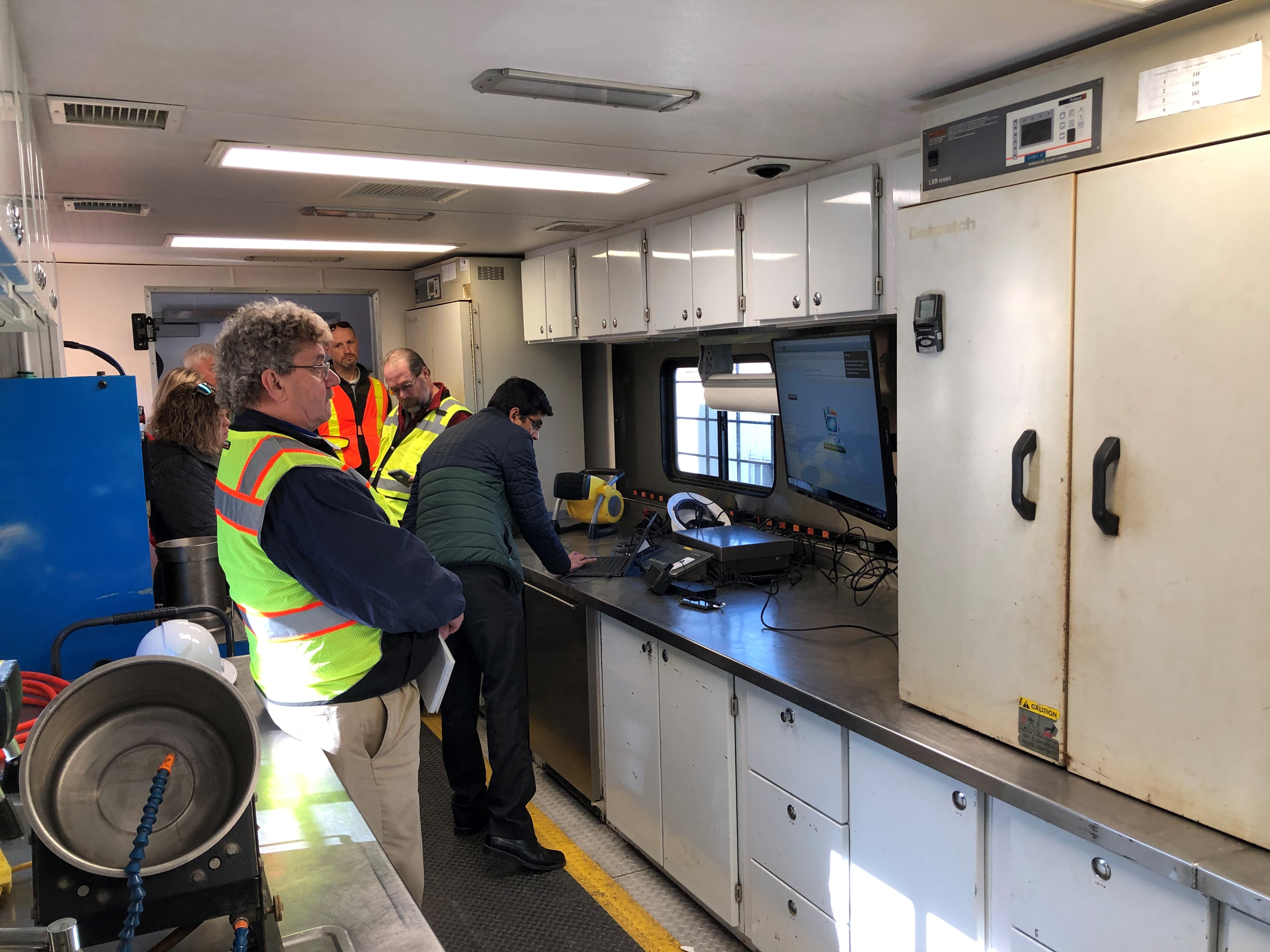Delivering Virtual Services and Assistance Across the Nation
The FHWA Resource Center (RC) is committed to employing new and innovative approaches to meet customer challenges. Organized in 10 teams and 19 specialty areas – traditionally, the RC’s staff responds to nearly 2,500 service requests annually to provide expert training and technical assistance to more than 30,000 transportation professionals.
In 2020, the RC intensified efforts and services in response to rising customer demands for virtual technical assistance. All RC teams quickly and creatively transitioned in-person sessions into interactive online courses, workshops, webinars, audits, conferences, or peer exchange events.
During fiscal year 2020, the RC specialists provided virtual training and technical assistance to more than 21,000 professionals. Below are a few examples of ways the RC teams adapted to changing conditions to help transportation agencies address immediate technical needs and prepare for future challenges.
Alaska
National Environmental Policy Act (NEPA) Assignment Audit

Lion’s Head Mountain along the Glenn Highway, near Anchorage, in Alaska. Image source: Adobe Stock Photo
Under the NEPA Assignment Program, the Alaska Department of Transportation and Public Facilities (AKDOT&PF) assumed responsibility for all project-specific environmental compliance and decision-making from FHWA. As part of the FHWA Audit Review Team, the RC’s Environment, Air Quality and Realty Team worked with the FHWA Office of Planning, Environment, and Realty’s Office of Project Development and Environmental Review (HEPE), the Office of the Chief Counsel (HCC), and the Alaska Division Office to conduct the required annual compliance audit of AKDOT&PF’s responsibilities. This year, the RC conducted the usually onsite and face-to-face interviews virtually. During the week-long audit, the team facilitated 31 audit web-based interviews to identify future training needs and process improvements to enhance AKDOT&PF’s NEPA Assignment Program.
Establishing Project Bundling Program for Kawerak Tribe Corporation
The RC’s Construction and Project Management Team provided virtual training and technical assistance to support a newly formed bundling program for the Kawerak Tribe Corporation in Alaska. This substantial program of up to $400 million dollars employs a new model of delivery, which incorporates three Every Day Counts (EDC) initiatives: Project Bundling, Alternative Contracting Method, and Value Capture. The program consists of bundling multiple transportation projects with other civil infrastructure projects into a single Construction Manager/General Contractor (CM/GC) contract, potentially using value capture for portions of the funding. The RC team is working in partnership with the Office of Tribal Transportation, Alaska Division Office, and Kawerak Tribe Corporation in this initiative
Alaska, Virginia, and Puerto Rico
Reliability Data for Cross-Program and Project Level Needs
The RC’s Transportation Performance Management, Asset Management, Freight and Analytics Team developed and delivered a tailored suite of virtual learning sessions and data/tool demonstrations for Alaska, Virginia, and Puerto Rico. Customized sessions were created for each customer group, which included FHWA Division Offices, State departments of transportation (DOTs), and Metropolitan Planning Organizations. The RC team designed this technical assistance to foster increased professional capacity building and learning, to demonstrate transferable practices, and to illustrate effective case studies for how reliability data can support effective transportation decision-making across a wide range of needs and issues.

The American Association of State Highway Transportation Officials (AASHTO) Highway Safety Manual (HSM) is the primary source of information and methods for quantitatively evaluating traffic safety performance on roadways.
California
Highway Safety Manual Practitioners Workshop
At the request of the FHWA California Department of Transportation (CalTrans), the RC’s Safety and Design Team delivered customized training on the Highway Safety Manual (HSM). CalTrans asked the RC team to train their staff for properly applying methods of the HSM, allowing for more informed decisions regarding roadway safety improvements. The RC quickly and seamlessly condensed the comprehensive, in-person training into an effective virtual workshop. The course provided an overview of fundamental HSM principles and an explanation of how to apply the methodology to highway safety planning, program development, and project delivery.
Delaware

Delaware Memorial Bridge in Wilmington, Delaware. Photo source: Adobe Stock Photo
Bridge Construction Workshop
The Delaware Department of Transportation (DelDOT) and the Delaware Division Office requested the RC’s guidance on the inspection and quality assurance (QA) reviews for bridge deck, foundations, superstructure, and mechanically stabilized earth wall construction. To meet this request, the RC’s Structures Team, in partnership with its Geotechnical and Hydraulic Engineering Team, developed and delivered a virtual course for more than 30 State bridge inspectors from DelDOT and the FHWA Delaware Division. The RC also delivered this virtual training to Florida, Puerto Rico, and Georgia DOTs.
Florida, Kentucky, Maryland, Nevada, Texas, Virginia, and Wisconsin
Professional Development Training
The RC’s Civil Rights Team received several requests for program training from new Civil Rights discipline members and Civil Rights Professional Development Program coaches in the Florida, Kentucky, Maryland, Nevada, Texas, Virginia, and Wisconsin Division Offices. To address these requests, the Civil Rights Team collaborated with the Construction and Project Management Team and the FHWA Center for Transportation Workforce Development to launch a virtual training series on topics such as the Disadvantaged Business Enterprise program, Title VI; Americans with Disabilities Act /Section 504, Contractor Compliance/On-the-Job Training, Contract Administration, and Contract Specifications.
Georgia
Technical Assistance on Air Quality and Traffic Noise Studies
In collaboration with the Georgia Department of Transportation and Georgia Division Office, the RC’s Environment, Air Quality and Realty Team is providing technical assistance on air quality and traffic noise studies to support $4 billion of upgrades to the Atlanta Metropolitan Area Interstate System. With aggressive development schedules, these projects involve complex air quality and traffic noise studies. To support this request, the RC provided high-level assistance such as technical reviews for transportation conformity, carbon monoxide hot spots; mobile source air toxics; traffic noise; and other related analyses to complete the NEPA process for these projects.
Kansas and Nevada

The Americans with Disabilities Act is an important piece of legislation supported by the Civil Rights Team.
Americans with Disabilities Act Program (ADA) Training
The RC’s Civil Rights Team, in partnership with the Kansas and Nevada Division Offices, their State DOTs, and ADA Coordinators, combined efforts to seamlessly transition an in-person basic ADA course to a virtual training session. The training covered essential topics such as the ADA Accessibility Guidelines, Public Right-of Way Accessibility Guidelines, standards, transition plans, alterations of the roadway, detectable warning surfaces, public right-of-way, and technical infeasibility.
Puerto Rico and U.S. Virgin Islands
Resiliency Peer Exchanges and Workshops
Three RC teams, along with the Office of Planning, Environment, and Realty’s Office of Natural Environment, collaborated to deliver transportation resilience peer exchanges and workshops for Puerto Rico and the U.S. Virgin Islands. The RC’s Environment, Air Quality and Realty Team led the initiative, working closely with the Geotechnical and Hydraulic Engineering Team and the Structures Team. The virtual trainings were conducted over a three-week period and focused on planning for resilience, designing for coastal and riverine flooding, and interventions to reduce damage from earthquakes.
Rhode Island

Image source: Adobe Stock Photo.
Freight and Land Use Seminar and Partner Dialogue
The RC’s Transportation Performance Management, Asset Management, Freight and Analytics Team developed a tailored suite of virtual learning sessions to promote better understanding of connections between freight and land use. This seminar was delivered by the RC team in six, two-hour sessions over multiple weeks. Seminar attendees included participants from the Rhode Island Department of Transportation, regional and local transportation agencies, and city and county planning and zoning agencies. The overall seminar involved significant interactivity approaches, peer and partner dialogue, and action plan development. Participants defined and prioritized specific freight and land use strategies to implement in Rhode Island.
National and Regional Events
National Hydraulic Engineering Conference
The RC’s Geotechnical and Hydraulic Engineering Team led the steering committee to plan, organize, and implement the 2020 National Hydraulic Engineering Conference. Originally proposed as an in-person event, the RC team managed the overall transition of the conference to three days of virtual sessions. More than 400 participants attended the conference in September.

The RC’s Operations Team hosted two Virtual Work Zone Roundtables for nearly 50 transportation professionals from the State DOTs throughout the South and Mid-Atlantic Regions. Photo source: FHWA.
Virtual Work Zone Roundtables
The RC’s Operations Team hosted two Virtual Work Zone Roundtables for nearly 50 transportation professionals from State DOTs throughout the South and Mid-Atlantic Regions. The purpose of the Roundtable events was to encourage relationship building among the National Work Zone Peer Network through the sharing of information, experiences, lessons learned, and best practices.
Automated Vehicle; and Vehicle Connectivity
The RC’s Operations Team organized an Automated Vehicle (AV) and Vehicle Connectivity (VC) web training conference for the FHWA Division Office staff from the Midwest, Northeast, and South Regions. The RC partnered with the FHWA’s Intelligent Transportation Systems Joint Program Office, Office of Operation’s Office of Transportation Management, and FHWA Division Offices to deliver the virtual conference. For three days, more than 90 transportation professionals participated in interactive training, in which they learned about the DOT’s role in AV and VC, regional state of practice for AV and VC, and necessary considerations for integrating AV and VC into roadway systems. The training focused on introductions of AV and VC technologies into the U.S. transportation system.
Educational Podcasts for Finance Management
The RC’s Finance Team debuted the use of podcasts as a unique and effective way to communicate with members of the discipline. In the six-episode series, the Finance Team interviewed FHWA leaders from across the country about core financial management topics, emerging issues, and best practices. The podcast episodes summarize and memorialize key points, while providing clarity and context on various topics. The finance podcasts are readily available and accessible to Finance discipline members and other FHWA employees through SharePoint.

Heather Foster, Financial Program Specialist with the Resource Center’s Finance Team, speaking with
Jim Sinnette, Acting Director of Financial Management and Programs from the Office of the Chief Financial Officer;
Karen Damiani, Program Analyst for the Office of Infrastructure;
and Bob Eatmon, Financial Specialist from the Resource Center’s Finance Team.
Photo source: FHWA.
Truck Size and Weight Training

Truck driving on New River Gorge Bridge in Victor, WV. Photo source: Adobe Stock Photo.
As part of the Structures Discipline Webinar Series, the RC’s Structures Team partnered with the Transportation Performance Management, Asset Management, Freight and Analytics Team to deliver a virtual truck size and weight workshop. The RC presented a national webinar to 93 participants, who gained an improved understanding of truck size and weight issues and the Travel Monitoring Analysis System.
Flexibilities in Quality Assurance
The RC’s Pavement and Materials Team developed and presented a webinar titled, Flexibilities in Quality Assurance. The session discussed recent changes in DOT materials acceptance programs. More than 100 participants from the Office of Preconstruction, Construction, and Pavements; and Division Offices attended the session.
